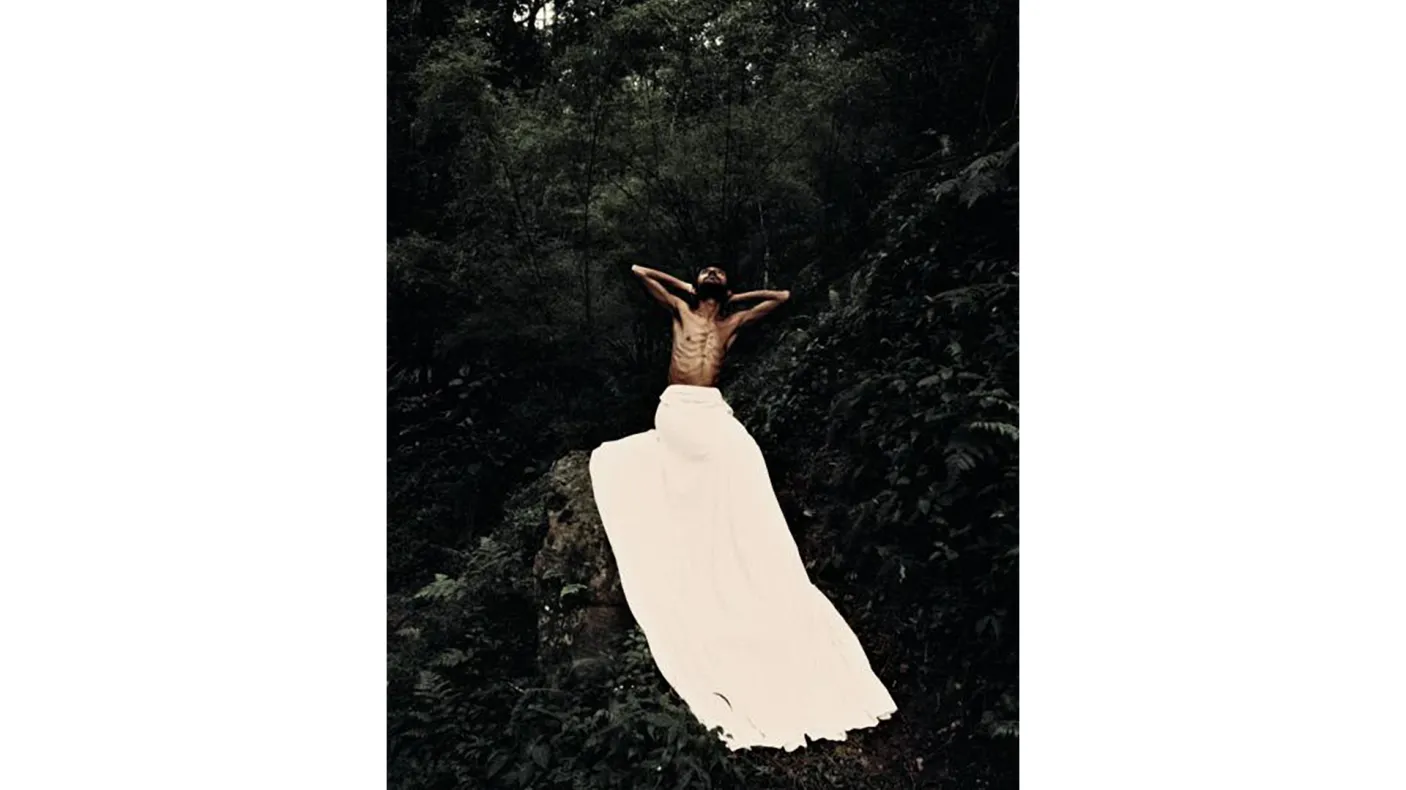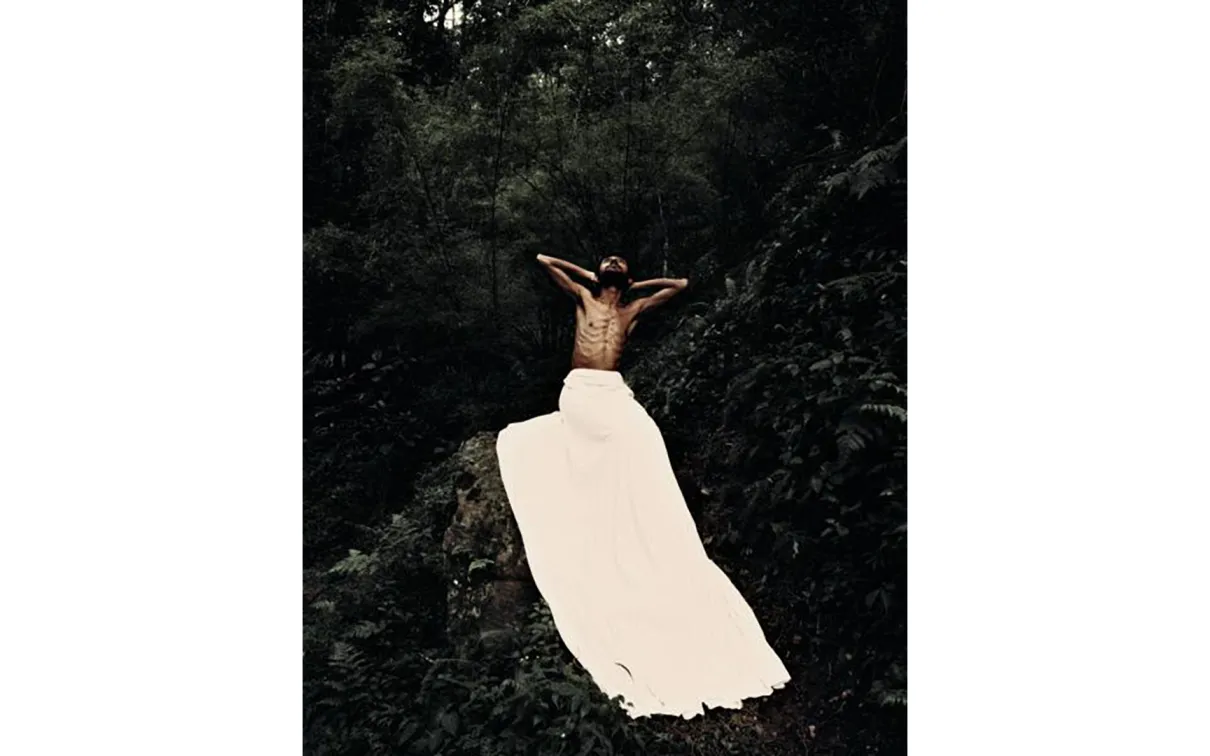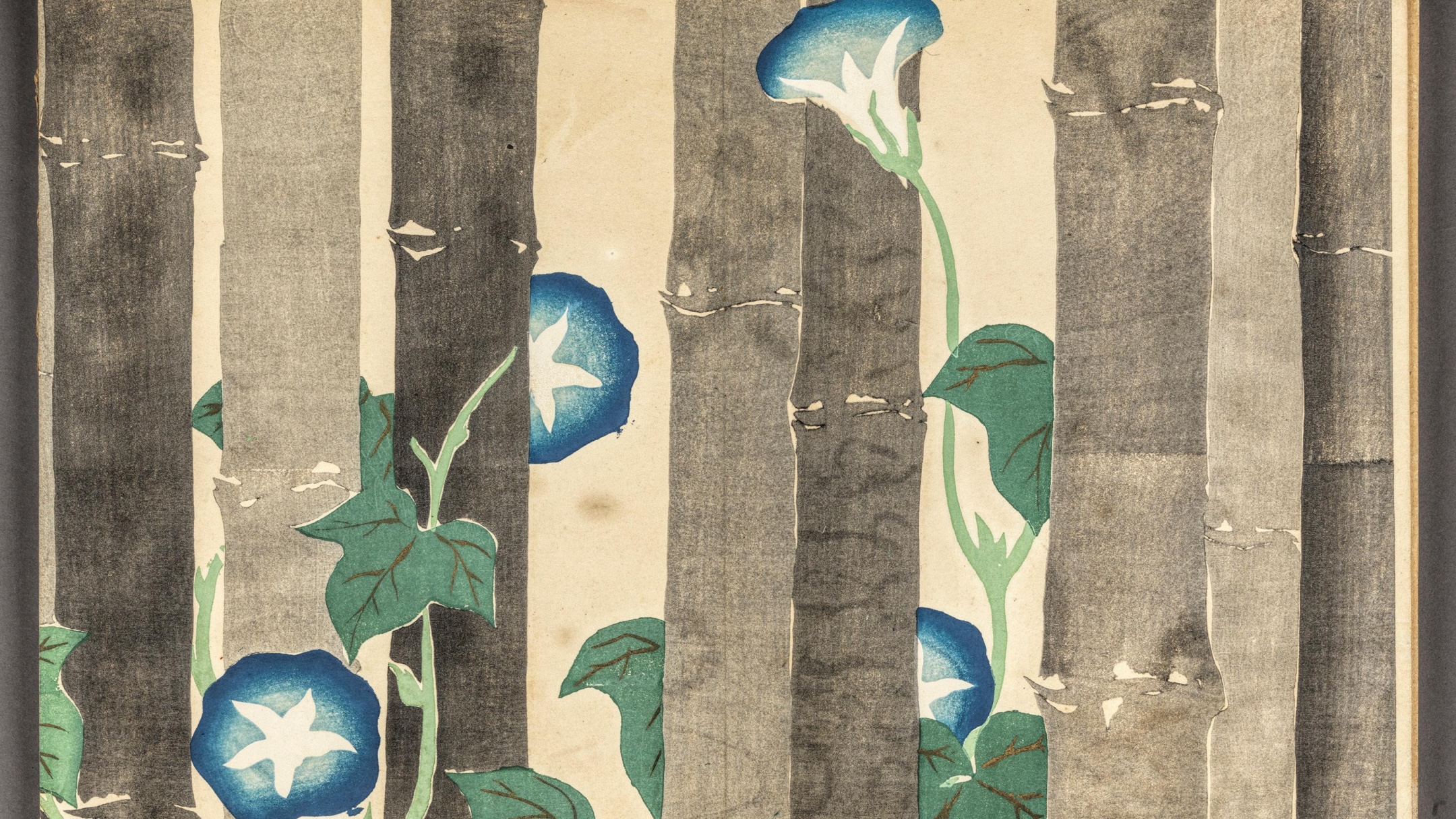In Defiance
Soumya Sankar Bose’s work shines a light on the freedom and self-possession of the LGBTQ+ community in eastern India in the face of state and social restrictions.
In the series “Full Moon on a Dark Night”
In the series “Full Moon on a Dark Night” (2015–), artist Soumya Sankar Bose worked closely with the LGBTQ+ community in eastern India to produce a series of staged portraits that have a surreal quality. The portraits explore the psychological dimensions of a community that is relentlessly pursued because of their gender and sexual identities and, as a result, are both hyper visible and invisible in contemporary India. A colonial-era law, Section 377 of the Indian Penal Code, criminalizes same-sex sexual activity.
In this image, a figure seated on a rocky outcrop in the middle of a lush forest lifts their head towards the night sky. The skeletal structure of their bare torso is articulated through their posture and a white sheet seems to elongate the lower half of their body.
Bose’s work plays with elements of darkness to symbolize the suffocating surveillance, isolation, and anxiety in everyday life due to restrictive laws and social taboos, conveyed here by the trees that loom over the figure and its precarious perch. And yet, light is used to symbolize freedom, captured here in the blinding whiteness of the cloth draped across the lower body reflecting that light of the full moon.
The pose is one of hope and self-possession, a sense of spirit uplifted through the imagining of possible futures. Bose spends considerable time with his sitters, whom he calls collaborators, and the process itself is meant to be an act of defiance and freedom.
Deepali Dewan
Deepali Dewan is Dan Mishra Curator of South Asian Art & Culture, Royal Ontario Museum.



